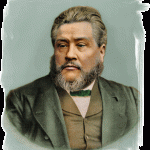Answering Objections to the Biblical Doctrine of Election – What about God’s foreknowledge?, 1 Tim 4:10?, John 12:32?, reprobation? lost loved ones?, prayer and evangelism? Part 2 of my podcast interview at reformedcast.com – found here.
Category Archives: Questions and Answers
Questions About Calvinism
I very much appreciated the way Pastor Jim McClarty responded to some questions in an article he posed entitled “Sovereignty, Puppetry,
Recently I have been watching your videos on YouTube of your messages and sermons about the Sovereignty of God, Calvinism, predestination, and Reformed Theology.
I am greatly encouraged by the messages but still confused because of how I was raised. People in the church I attended said Calvinists do not evangelize and they [Calvinists] think people are robots with no free will to love God.
So here are my questions:
1. Are all events on earth already preordained by God?
2. Do we have a “free will?”
3. Are we robots already programmed?
4. How does the aspect of love play into this if we are just puppets?
Reply:
 I understand your perplexity. It takes time to sort through the things you’ve been taught and separate traditions from valid doctrines. One of the most difficult aspects of learning and embracing what the Bible actually says is un-learning our traditions, assumptions, and presuppositions.
I understand your perplexity. It takes time to sort through the things you’ve been taught and separate traditions from valid doctrines. One of the most difficult aspects of learning and embracing what the Bible actually says is un-learning our traditions, assumptions, and presuppositions.
The things that you’ve written here are typical responses to Calvinism. For instance, people who do not know their church history will often claim that Calvinism inhibits evangelism. But nothing could be further from the truth. The fact is, some of the greatest revivals in history were led by Calvinists. The first universities planted on U.S. soil were established by Calvinists. Some of the most enduring missionary societies were established by Calvinists. So, the claim that Calvinists do not evangelize is mere folly.
The following bit of history is from my book By Grace Alone (which is available as a free pdf download on the GCA website), including a pericope from David Steinmetz’s book Calvin in Context.
Calvinism, as it is commonly called, has a rich European history, but it finds its most striking influence during the foundation of these United States. Owing to Martin Luther’s commitment to reform, the church that bears his name was founded on the teaching of God’s election and determinate predestination. John Knox, the founder of the Presbyterian Church, held these doctrines. Early American history reveals that the vast majority of the Pilgrims who landed at Plymouth Rock were Calvinistic Presbyterians. The Congregationalist Churches of early America were once bound by these doctrines. And the original Baptists were avid predestinarians, which is why their modern counterparts advertise themselves as “Free-Will Baptists” to distinguish themselves from their ancestors.
This English Calvinist strain was strengthened by the Dutch Calvinists of New York and New Jersey, the German Reformed of Pennsylvania and Maryland, and the Scots-Irish Presbyterians who settled in the mid-Atlantic and southern colonies.While not all settlers in the New World were Protestant and not all Protestants were Calvinist, nevertheless there was from the very beginning a strongly Calvinist influence on American thought and institutions. Calvinists founded universities, pioneered the New England town meeting, insisted on the separation of powers in the federal government, played a prominent role in the movement for the abolition of slavery, and even promoted such characteristic institutions of frontier revivalism as ‘the anxious bench’ and the ‘camp-meeting’… In short, although Calvinism is not the only ingredient in American intellectual and religious history, it is such an important ingredient that no one can claim to understand American history and culture without some appreciation of its Calvinist heritage.
Or, let’s look at it this way: Calvinistic theology is drawn directly from biblical, Pauline doctrine. Of all the New Testament writers, Paul wrote the most complete arguments in favor of God’s absolute predestination and electing grace. Yet, Paul devoted his life, his wealth, his health, and everything in him to the work of evangelism. Calvinists follow Paul’s example. We teach everything that the Bible says and we do everything that the Bible instructs. We evangelize vigorously because we do not know who God’s elect are. And in reality, Calvinism inspires evangelism because we know that God’s word will not return to Him void; it will accomplish what God intends for it to accomplish. Continue reading
Questions about Abortion
 I received this from someone earlier today:
I received this from someone earlier today:
“I am probably going to get flak for this but there have been two questions I have been dying to ask for over 30 years around abortion? First why is the church and government asking a woman to have a kid knowing full well they can’t afford them or in no way want them? What about the thousands of teenage pregnancies that occured because of a wild party or drunk night? What about the cost to society of bringing yet another unwanted kid in this crazy world?
Mainly like to know why they are against abortions yet at the same time support the arms race an nuclear war which will wipe out humanity? That does sound a bit hypocritical. Just a few thoughts. Feel free to comment. I consider myself a moderate an big brother has no right to tell us whether or not to keep a potential kid or not. I am however totally against abortions after 6 weeks.”
Here was my response:
1) Why is the church and government asking a woman to have a kid knowing full well they can’t afford them or in no way want them?
Answer: Well the current government is very pro abortion, but to answer your question: Because a child is infinitely precious, made in the image of God and does not deserve to die just because parents made foolish choices. For parents who cannot afford the child, there is such a thing as adoption. There are a great many adults who for various reasons are unable to have children and who would desperately love to have the joy of raising a child. They are on waiting lists for years just hoping that they are given the go ahead to adopt. Lack of finance is no excuse for murder.
2) What about the thousands of teenage pregnancies that occured because of a wild party or drunk night?
Answer: As above.
3) What about the cost to society of bringing yet another unwanted kid in this crazy world?
Answer: What about the cost to society of being murderers? Who said they are unwanted? You do.. and maybe their parents do, but not those who love children and would be overjoyed to raise a child in a loving atmosphere.
4) Why are they against abortions yet at the same time support the arms race an nuclear war which will wipe out humanity?
Answer: Actually, the idea about having nuclear weapons is to have such an arsenal available that no other nation would dare use their nuclear weapons against them. For example, the reason North Korea is NOT using its weapons against the USA right now as you are reading this, is because they know USA also has such weapons, enough to wipe them out. While having nuclear weapons, our hope and prayer is that they will never need to be used. The reason we sleep sound tonight in the USA is because thankfully, though many nations hate us, no one is insane enough as to take us on militarily with nuclear weapons for the simple reason that they know we have more than enough to retaliate, should such a thing occur. Believe me, if the USA discarded every nuclear weapon it has, and say Iran got one (or more)… the USA would not last another 24 hours.
Bear in mind too that to attack with a nuclear weapon is really a suicidal act, because that country (or their friends) would simply retaliate in like kind. To quote from one of Sting’s songs, “We share the same biology, regardless of ideology. What might save us, me, and you, is if the Russians love their children too.”
Being FOR LIFE means standing against abortion and (in this hostile world) having enough weapons on hand so that no one is foolish enough to send a nuclear weapon our way. There is no inconsistency… we just hope nuclear weapons never ever need to be used.
5) 6 weeks?.. Why would killing a 5 week old baby be ok?
The Husband of One Wife (Part 2)
 Pastor Jim McClarty is a wonderful brother and Bible teacher. He pastors Grace Christian Assembly in Smyrna, TN. He has become something of a friend through our e-mail communication, even though we have yet to meet in person. He was extremely helpful to me in proof reading the manuscript of my new book “Twelve What Abouts,” providing many helpful suggestions which very much improved the clarity and flow of language. His website can be found at http://www.salvationbygrace.org.
Pastor Jim McClarty is a wonderful brother and Bible teacher. He pastors Grace Christian Assembly in Smyrna, TN. He has become something of a friend through our e-mail communication, even though we have yet to meet in person. He was extremely helpful to me in proof reading the manuscript of my new book “Twelve What Abouts,” providing many helpful suggestions which very much improved the clarity and flow of language. His website can be found at http://www.salvationbygrace.org.
Here is an issue which sometimes comes up in the life of the Church. I appreciate Pastor McClarty’s careful handling of the question and would agree entirely. (For those interested, here is Dr. R. C. Sproul’s answer to a similar question).
Question – What is your opinion of someone being a pastor who is divorced? I want to hear your input on this whole “man of one wife” thing because one church we’ve been visiting will allow an elder to be divorced, but not the pastor. Yet when I read Titus, it clearly says bishop and elder … man of one wife. So I want to know how and why they make a distinction.
Jim McClarty – This is another one of those places where many churches lead with their traditions. I have also heard for most of my life that the phrase “husband of one wife” means that a pastor must be married, not single. He must not be divorced. If he is divorced he certainly must not remarry. But it is okay for him to remarry if he is a widower. But, that was not Paul’s point. Tradition does have a way of taking basic Biblical ideas and stretching them beyond their original intention. A bit of simple exegesis will clear this up.
Let’s start with the supposed distinction between bishops, elders and pastors. The phrase “husband of one wife” first occurs in 1 Timothy 3:2 concerning bishops. The Greek word for bishops is “episkopos.” The same word is also translated “overseer.” In the New Testament there was a bishop in every church, tasked with the work of watching over the church, guiding it and seeing to its general health and well-being.
Now, these same men, serving in this same office of bishop/overseer, were also called “elders” – or “presbuteros” – in Acts 20:17. This is made obvious when you compare Acts 20:28 where these elders are called overseers.
“And from Miletus he (Paul) sent to Ephesus, and called the elders of the church.” (Acts 20:17-18)
“Take heed therefore unto yourselves, and to all the flock, over the which the Holy Ghost hath made you overseers, to feed the church of God, which he hath purchased with his own blood.” (Acts 20:28)
In other words, bishop, elder and overseer are one and the same office.
Then we find pastors. They really only show up in Ephesians 4:11. In the Greek they are called “poimen,” or “shepherds.” According to Vine’s Expository Greek dictionary, “pastors guide as well as feed the flock… this involves tender care and vigilant superintendence.” But importantly, Acts 20:28 refers to “overseers” as those who tend to and feed the flock.
So, in Paul’s perspective, bishops/overseers are the same thing as pastors. And, bishops/overseers are the same thing as elders. The words are interchangeable. They each indicate some aspect of the job. They do not designate individual offices held by separate men within a local church. Consequently, the requirements for elders, bishops, overseers and pastors are all exactly the same because pastors are elders. In our modern church structure it is more common to find a plurality of elders who act as officers of the church and one man who acts as pastor. But in reality, any man who is ordained an elder ought to have the ability, willingness and gifts to pastor. Men who operate within a church as officers, caring for the day-to-day business and making decisions concerning the physical structure and organization are acting as deacons, not elders.
That being said, the second place where “the husband of one wife” occurs is in 1 Timothy 3:12, when referring to deacons. The third place where it occurs is in Titus 1:6, concerning bishops.
The phrase “husband of one wife” was a common Greek phrase, used in many documents outside of Scripture, so Greek grammarians have a good handle on what it meant in everyday usage. In fact, I have checked with David Morris, a Greek scholar (and one of the men who ordained me as an elder) about this very topic.
The phrase “husband of one wife” has to do with the character of the man being considered for the office of overseer/bishop/elder/pastor or deacon. It is best translated “a one-woman type of man.” This is as opposed to a polygamist. The New American Standard Version tries to emphasize this idea by rendering the phrase, “husbands of only one wife.” They add the word “only” to the text in order to bring out the idea that Paul was speaking against polygamy. The NIV adds the word “but,” rendering the phrase, “husband of but one wife.” Both of those translations are attempting to bring out Paul’s real meaning.
Remember that multiple wives were a common part of Old Testament life, right up until the time of Christ. It was common for Middle Eastern men to have multiple wives and to divorce them and add new wives at will. That is a character issue. Such men should not lead in the Church. But, what type should? If he is a man committed to one woman at any given time, then he is “a one-woman type of man.” His commitment to one woman bespeaks his character.
Now – and this is important – Paul was familiar with the word “chorizo,” which is translated “depart” in the KJV version of 1 Corinthians 7:10:
“And unto the married I command, yet not I, but the Lord, Let not the wife depart from her husband: but and if she depart, let her remain unmarried, or be reconciled to her husband: and let not the husband put away his wife.” (1 Cor. 7:10-11)
Other translations render the word “chorizo” as “divorce.” And, that’s exactly what “divorce” means; to depart, or put distance between two people – “chorizo.” Paul knew how to use that word and wrote about the different situations that might arise when believers were married to unbelievers. He understood that people might leave and divorces might happen.
“But to the rest speak I, not the Lord: If any brother hath a wife that believeth not, and she be pleased to dwell with him, let him not put her away. And the woman which hath an husband that believeth not, and if he be pleased to dwell with her, let her not leave him. For the unbelieving husband is sanctified by the wife, and the unbelieving wife is sanctified by the husband: else were your children unclean; but now are they holy. But if the unbelieving depart, let him depart. A brother or a sister is not under bondage in such cases: but God hath called us to peace. For what knowest thou, O wife, whether thou shalt save thy husband? Or how knowest thou, O man, whether thou shalt save thy wife? But as God hath distributed to every man, as the Lord hath called every one, so let him walk. And so ordain I in all churches.” (1 Cor. 7:12-17)
So, here’s my point. Paul knew the language of divorce and wrote about it. Yet, when Paul listed the qualifications for elders/bishops/overseers/pastors and deacons, he did not make any reference to divorce. He was concerned primarily with character issues – the type of man he was – and whether he had been evidently gifted by God to fill that office (“not a novice … apt to teach”). If Paul had meant to convey the message that pastors, elders or the like could not be divorced, it seems to me that he would have mentioned it in the list of qualifications. Again, He does use that language in other letters. Paul is familiar with the word “divorce.” It certainly seems that he would have included it in his list if that is what he meant to say.
But, he didn’t. Instead, he referred to a man who was not a bigamist, not marrying multiple women concurrently or all at once. In short, not a womanizer; the same way he was not to be a brawler, a drinker, a striker, greedy or covetous. These were matters of character and giftedness.
My friend, I don’t think people believe me when I say that preaching/pastoring is a really hard job. But, it is made especially hard by the fact that everyone in the world, and especially in the church, considers themself your judge. The Bible does not condemn men who labor in the Word, but whose marriage failed. Only people’s traditions do that.
Now let me be clear. A pastor who is married and divorced repeatedly has a character issue that must be dealt with. After all, if the Word he is preaching cannot affect his own behavior, then how can he expect it to affect others? Marriage is indeed a type of Christ and His church. Marriage between Christians is a sacred union that we should fight hard to uphold. But sometimes marriages fail. That is the reality of the human condition. And thank God there is ample grace and forgiveness in Christ for every sinner – even the ones in the pulpit.
I hope that helps.
Q – Wow! Thanks for your efforts to answer that. I know that took some time. Feel free to use this Q & A on the website.
You’re welcome. Perhaps this discussion will help others heal.
Yours in Him,
Jim McClarty
They mock…
 What do we say when unbelievers mock the law of God?
What do we say when unbelievers mock the law of God?
R. C. Sproul Jr responds:
It’s not peculiarly new, this objection. People have used it for some time when confronted with the plain teaching of the Bible. Those outside the church seek to wiggle out from under the commands of God by, oddly, pointing to the commands of God. When we say “The Bible forbids x” they don’t reply, “It does not.” Instead they reply, “The Bible also says you can’t wear a shirt with both cotton and wool. The Bible also says you can sell your daughter. The Bible also says you can stone your son if he gets out of line.” And most Christians slink away.
The argument assumes the existence of a universal moral law that all humans recognize, but then suggests that the Bible itself not only falls short of that moral law but clearly and immediately opposes that universal moral law. The argument suggests, “Given that the Bible’s sense of morality says this, why should we listen to what it has to say about that?” It has reared its ugly head again in light of the President’s endorsement of same-sex “marriage.” And as usual, too many Christians are running scared.
What though, ought we to do with laws that challenge our sensibilities? The first thing we need to do is to understand the nature, meaning and scope of the laws. Consider, for instance, God’s command to Old Testament Israel that they not wear clothing of mixed materials. This law falls under what we call the ceremonial laws. These laws were not given because eternal moral standards require them. They were given instead for a more narrow, specific purpose- to set Israel apart from her neighbors. The same would apply to prohibitions against eating pork or shellfish. These laws were given for a people, for a time. They were not evil laws then, but they are not binding laws now. Jesus fulfilled the ceremonial law, which means we now can eat a BLT, and better still, don’t have to be circumcised.
Some of the “offending” laws, however, were not ceremonial as such, but were civil. The Old Testament civil law, for instance, allowed for recalcitrant, disobedient children to be stoned to death. This did not mean, of course, that failure to pick up ones toys was a capital offense. The law instead dealt with older, teenaged children who defied, who dishonored, who maligned their parents continually. Still find it offensive?
Then you need to repent. The God of heaven and earth determined that the nation of Israel, that He formed, that He governed, should have such a law. No doubt recalcitrant children didn’t like it. No doubt their heathen neighbors didn’t like it. But we who are supposed to be indwelt by the Holy Spirit are commanded to disciple the nations, commanding them to obey all that Jesus commanded. And Jesus, remember, came not to abolish the law, but to fulfill it.
The heathen find this retort effective not because God’s law is shameful, but because we are shamefully ashamed of it. We are already compromised, having our sense of justice informed by the world, rather than the Word. Our calling is not to squirm, not to apologize, not to try to cover for God. No, our calling is to stand on His Word, to have our consciences held captive to it, to adjust our moral sensibilities so they match God’s, rather than the world’s. Our calling is to be ashamed of ourselves, rather than the One who rescued us from our sins.
Questions About Christianity
 Warning: There is a whole lot of material in this blog post… Hopefully it can be a resource to come back to many times over.
Warning: There is a whole lot of material in this blog post… Hopefully it can be a resource to come back to many times over.
Tim Keller, “This is Jesus”.
Talk #1: A Sceptical Student encounters Jesus
Talk #2: The Insider and the Outcast Encounter Jesus
Talk #3: Two Grieving Sisters Encounter Jesus
Talk #4: A Wedding Party Encounters Jesus
Talk #5: The First Christian Encounters Jesus
Dr. Keller also took time to take questions from those in attendance. Here are some of them:
What is Christianity’s stand on other religions and do we call people of other faiths our brothers and sisters?
Continue reading
Criticism
 “He who grows in grace remembers that he is but dust, and he therefore does not expect his fellow Christians to be anything more. He overlooks ten thousand of their faults, because he knows his God overlooks twenty thousand in his own case. He does not expect perfection in the creature, and, therefore, he is not disappointed when he does not find it. When our virtues become more mature, we shall not be more tolerant of evil; but we shall be more tolerant of infirmity, more hopeful for the people of God, and certainly less arrogant in our criticisms.” – C.H. Spurgeon
“He who grows in grace remembers that he is but dust, and he therefore does not expect his fellow Christians to be anything more. He overlooks ten thousand of their faults, because he knows his God overlooks twenty thousand in his own case. He does not expect perfection in the creature, and, therefore, he is not disappointed when he does not find it. When our virtues become more mature, we shall not be more tolerant of evil; but we shall be more tolerant of infirmity, more hopeful for the people of God, and certainly less arrogant in our criticisms.” – C.H. Spurgeon
Choose Life!
 Question: How can you reject free will? Does not Moses say to the Israelites “Therefore choose life, that you and your offspring may live?” (Deut 30:19)
Question: How can you reject free will? Does not Moses say to the Israelites “Therefore choose life, that you and your offspring may live?” (Deut 30:19)
My good friend, John Hendryx of monergism.com answers:: Yes it is indeed true that God commands the Israelites to “choose life”, but when read in the context of the whole chapter, Moses reveals that the power to obey this command comes from regenerating grace:
“And the Lord your God will circumcise your heart and the heart of your offspring, so that you will love the Lord your God with all your heart and with all your soul, that you may live.” (Deut 30:6)
In other words, God commands people to obey, but he also supplies all the grace needed to do so. The command to believe does not itself contain the power to do so. God commanding obedience (what we ought to do) does not mean a person can do this apart from grace. God must set them free from innate love of sin and natural hostility to God, if they have any hope of moving toward Him. Left to ourselves we are too proud to let go of our self-complacency and self-righteousness and so we will never rightly understand our woeful, guilty, and lost condition unless God grants it.
So why did not all Israel believe? Because not all were children of promise. Some God left to their own boasted free will, letting them do what they wanted. In Romans 9: 6-8 it says of Israel:
“For not all who are descended from Israel belong to Israel, and not all are children of Abraham because they are his offspring, but “Through Isaac shall your offspring be named.” This means that it is not the children of the flesh who are the children of God, but the children of the promise are counted as offspring.”
 This means that spiritual circumcision was not given to all physical descendants of Abraham but to the children of promise in their midst. The rest were commanded but refused to obey. Some get mercy but the rest get justice.
This means that spiritual circumcision was not given to all physical descendants of Abraham but to the children of promise in their midst. The rest were commanded but refused to obey. Some get mercy but the rest get justice.
In 2 Chronicles 30:6-12 we also are given a glimpse of what takes place behind the scenes of how it is that some people believe the gospel while others do not:
So couriers went throughout all Israel and Judah with letters from the king and his princes, as the king had commanded, saying, “O people of Israel, return to the Lord, the God of Abraham, Isaac, and Israel, that he may turn again to the remnant of you who have escaped from the hand of the kings of Assyria. 7 Do not be like your fathers and your brothers, who were faithless to the Lord God of their fathers, so that he made them a desolation, as you see. 8 Do not now be stiff-necked as your fathers were, but yield yourselves to the Lord and come to his sanctuary, which he has consecrated forever, and serve the Lord your God, that his fierce anger may turn away from you. 9 For if you return to the Lord, your brothers and your children will find compassion with their captors and return to this land. For the Lord your God is gracious and merciful and will not turn away his face from you, if you return to him.”
10 So the couriers went from city to city through the country of Ephraim and Manasseh, and as far as Zebulun, but they laughed them to scorn and mocked them. 11 However, some men of Asher, of Manasseh, and of Zebulun humbled themselves and came to Jerusalem. 12 The hand of God was also on Judah to give them one heart to do what the king and the princes commanded by the word of the Lord.
Why did some believe? According to this passage, it is because God had mercy on them and gave them a heart to follow God’s command to repent. Notice that the rest scorned and mocked God’s word.
Continue reading
The Marks of a True Church
 What are the marks of a true church? I have heard people say there are three: 1. The preaching of the gospel takes place. 2. The sacraments are rightly administered. 3. Church discipline is exercised.
What are the marks of a true church? I have heard people say there are three: 1. The preaching of the gospel takes place. 2. The sacraments are rightly administered. 3. Church discipline is exercised.
I can see that all of these are biblical. But is that all one should look for? What about prayer, love, evangelism, discipleship and practical care for people, etc?
Thanks for your question. Of course, many sects call themselves a “church.” Such has always been the case throughout Church history. Because of this, the Protestant Reformers in coming to understand the true Gospel of Christ, sought to help people distinguish between true and false churches. Since early on in Church history, Christians have used the Apostles’ Creed and the Nicene Creed as confessions of faith. If a Church has a problem affirming these basic doctrines found in these catholic creeds (the word catholic here means universal, meaning that all orthodox Christians would affirm these truths) it leads me to think that they do not embrace true and sound doctrine. If a Church cannot affirm essential truths such as the Trinity or the full deity and humanity of Christ, then it is embracing something else, and anything else is a heresy. A heretical church by its very definition, cannot be a true church. It is vital that we get our doctrine right on the essentials of the faith. We only have to read Galatians chapter 1 to realise that if a church preaches another gospel, it comes under the anathema (the eternal curse) of God. That is why Martin Luther called the doctrine of sola fide (justification by faith alone) the article upon which the church stands or falls.
The Reformers were clear: The one true holy and apostolic church is present where (1) the word of God (and the Gospel) is preached and taught; (2) the sacraments of the church are rightly administered (namely baptism and the Lord’s Supper) and (3) church discipline is faithfully exercised. By implication, this third mark necessarily requires the presence of godly leadership (elders) who provide a safe place for the sheep to grow in Christ and who can ward off any wolves who seek to devour (see Acts 20). That is why Christians simply getting together for fellowship, though wonderful, without the oversight and care of elders, it does not consititute the gathering of a true Church. Christ, the Chief Shepherd has established His under shepherds for the care, protection and spiritual well being of His precious sheep (see Hebrews 13:17).
 In his Institutes, John Calvin wrote, “Wherever we see the Word of God purely preached and heard, and the sacraments administered according to Christ’s institution, there, it is not to be doubted, a church of God exists” (4.1.9). Buck Parsons commented on this by saying, “Calvin and the Reformers understood that the pure preaching of the Word and the right administration of the sacraments of baptism and the Lord’s Supper, which includes the practice of church discipline, were essential elements of a true church, with the implicit repudiation of false churches that did not conform to these fundamental biblical qualifications.”
In his Institutes, John Calvin wrote, “Wherever we see the Word of God purely preached and heard, and the sacraments administered according to Christ’s institution, there, it is not to be doubted, a church of God exists” (4.1.9). Buck Parsons commented on this by saying, “Calvin and the Reformers understood that the pure preaching of the Word and the right administration of the sacraments of baptism and the Lord’s Supper, which includes the practice of church discipline, were essential elements of a true church, with the implicit repudiation of false churches that did not conform to these fundamental biblical qualifications.”
Other things are vital for church life as you rightly observed. We could add many more things to your list in fact. However these things flourish only where the three marks of the church are present.
For instance, lets talk about love. Love is absolutely vital for the health of a local church, yet we need to ask “how do we distinguish true Christian love from all imitations?” We do so by being exposed to the word of God. When God’s word is rightly preached and taught it actually cultivates true Christian love amongst the flock. It is a function of faithful shepherds of God’s church to (at certain times) bring caring, Christ like and Biblically based discipline to the church’s members, both as an act of love and as a means of cultivating genuine and authentic love among the church’s members.
I heard a good illustration some time back that I feel is worth sharing. Think of the three indispensable elements of a house: a foundation, a frame, and a roof. Many things may be installed in a house, such as couches, chairs, curtains, sinks, toilets, a bath or shower, a washer and dryer, an oven, electrical wiring, beds and so on. I think having a good accurate clock is a good thing to have in a house too. I am sure we agree that the list could be endless. Yet though I may have all of these things in a yard somewhere, I really don’t have a house until I have the three essentials elements of a foundation, a frame, and a roof.
There are many essential elements for healthy church life. Yet unless the Word of God is rightly preached and taught, the sacraments rightly administered, and church discipline is faithfully exercised, there is no true church present. Where these marks are absent, true holiness will be absent too. If even one of these three marks are missing it should not be considered to be a true church of Christ.
Matthew 18:15-20
 Question: Pastor John, what do you do if you confront a chuch member with an offense and they do not respond. You then get another witness to confront them and they will not respond. Then the two of you go to the church eldership with the whole matter because the offender will not respond. Then the elders take the position of the offender. What in the world do you do then?
Question: Pastor John, what do you do if you confront a chuch member with an offense and they do not respond. You then get another witness to confront them and they will not respond. Then the two of you go to the church eldership with the whole matter because the offender will not respond. Then the elders take the position of the offender. What in the world do you do then?
Thanks for your question. In Matthew chapter 18, Jesus outlined the sequence of steps we are to take when there is an offence between an individual and a fellow brother or sister in the church. This process is something rarely enforced today, much to our shame. However, Jesus’ words still stand. He expects His disciples (including those privileged with the task of leadership) to follow His word in these matters.
Jesus, in Matthew 18:15-20 says, “If your brother sins against you, go and tell him his fault, between you and him alone. If he listens to you, you have gained your brother. But if he does not listen, take one or two others along with you, that every charge may be established by the evidence of two or three witnesses. If he refuses to listen to them, tell it to the church. And if he refuses to listen even to the church, let him be to you as a Gentile and a tax collector. Truly, I say to you, whatever you bind on earth shall be bound in heaven, and whatever you loose on earth shall be loosed in heaven. Again I say to you, if two of you agree on earth about anything they ask, it will be done for them by my Father in heaven. For where two or three are gathered in my name, there am I among them.”
If you have indeed followed Jesus’ protocol, once you have exhausted the biblical steps mentioned here, there’s really not much you can do. You have discharged your duty before God in doing all in your power to see the matter brought to justice. The Lord knows that.
The elders have then taken a position you do not agree with. Not knowing the situation, I do not know if the disagreement you have with the elders is because the they do not see enough proof that the other party is in violation of Scripture in their conduct, or whether the elders know of the violation but will not implement Church discipline. It is hard for me to comment further on the matter, not knowing any more than what you have revealed.
The only question that remains is whether you believe the matter to be so serious and such a violation of Scripture that your conscience will no longer allow you to submit to the leadership of the Church.
Continue reading
